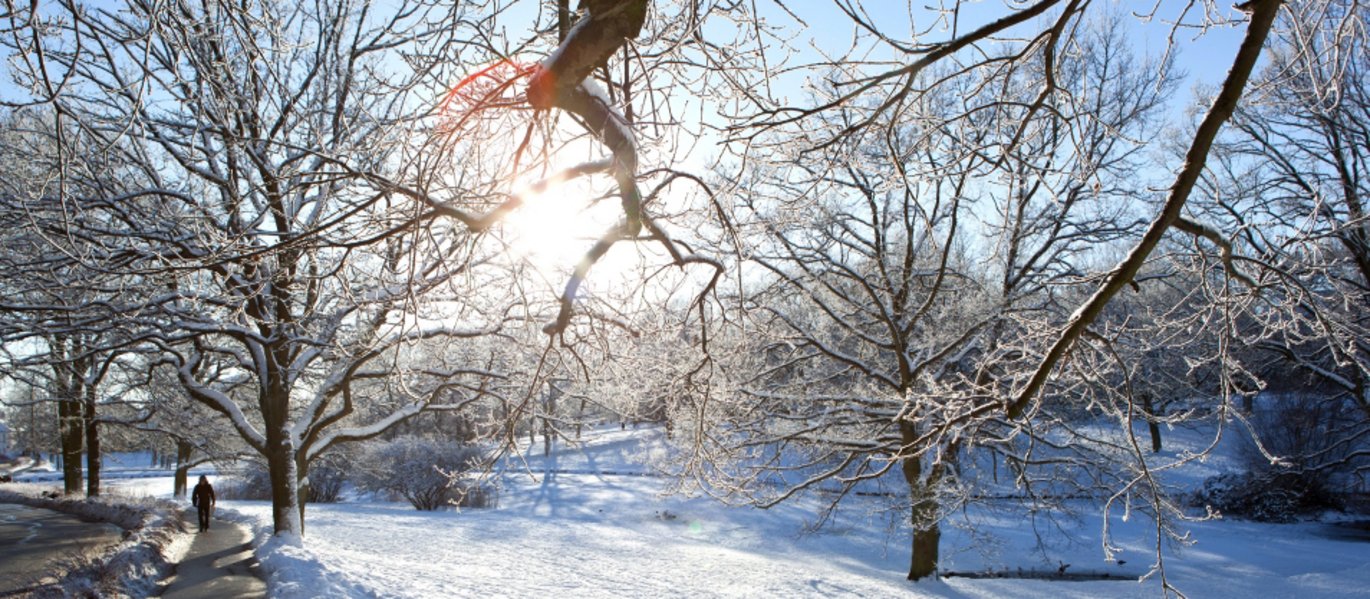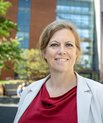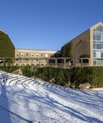The Dean’s Christmas Letter
Read Dean Mette Thunø’s Christmas greetings to staff at Faculty of Arts.

Dear colleagues
Christmas is here once again, and you can all look forward to a thoroughly well-deserved break. I hope that you have a wonderful holiday with your family and friends, and that you will be able to put your concerns about the future behind you for a while.
In February AU will be carrying out the cuts that have been announced, as agreed by the board on Wednesday. We are also going to implement the long-awaited departmental adjustments; put the finishing touches to our new, joint standards for working hours; carry out the first strategic projects; and finalise the department strategies. I know this is a pretty ambitious agenda, and I am also fully aware that it will make big extra demands on you all.
I should like to take this opportunity of thanking you for all the comments and responses we have received regarding our strategies and policies during the past year. It has been a real pleasure to witness the level of commitment in all the many proposals you have submitted. We have tried to incorporate them to the best of our ability – most recently in the strategy for the Faculty of Arts 2013-2020, which has just been finalised.
In the New Year many of these proposals will be turned into decisions which will help to build up a stronger and more efficient organisation. At the same time, we will of course be maintaining our focus on the other areas which were identified as problematic during the workplace assessment process.
In the past couple of years we have been working hard to consolidate our faculty, but a number of significant academic steps have also been taken to equip ourselves to meet the challenges of the future. It’s impossible to mention all these activities in the space available here, but here are some of the results achieved in 2013 that reflect the great potential of the Faculty of Arts:
- Three new Master’s degree programmes gained accreditation: Diaconal Studies (Department of Culture and Society), South Asian Studies (Department of Culture and Society), and Sustainable Heritage Management (Department of Culture and Society). More are in the pipeline, as well.
- A grant of DKK 16 million for MSO Professor Kim Halsskov, Department of Aesthetics and Communication, from the Strategic Research Council, for the research project CIBIS: Creativity in Blended Interaction Spaces
- A grant of DKK 22 million from the Danish Ministry of Education to the Department of Education for studies of the academic level in Danish schools. This is part of the international studies being carried out by the International Association for the Evaluation of Educational Achievement
- The establishment of a network driven by researchers for digital research methods: Digital Arts
- The Department of Aesthetics and Communication is to host the national contact point for the European Centre for Modern Languages under the European Council. The University of Southern Denmark, Aalborg University, Copenhagen Business School, Roskilde University and all the Danish university colleges are also involved.
- The Danish Ministry of Education also gave us responsibility for the theoretical teacher-training course at upper-secondary schools in Denmark in a consortium with the University of Southern Denmark, Aalborg University and Roskilde University.
- The Evangelical Lutheran Church in Denmark is opening a new Education and Knowledge Centre. The Danish Ministry of Gender Equality and Ecclesiastical Affairs has chosen Aarhus as the location, and AU will be contributing both research and office facilities to the project.
- Significant external awards were won by Lise Marie Andersen and Jonathan Cahana from the Department of Culture and Society (the sapere aude programme), Mads Daugbjerg from the Department of Culture and Society (the Tietgen Award), Annette Hilton from the Department of Education (the EAPRIL Award for the didactics of mathematics), and Rie Thomsen from the Department of Education (the Guidance Award).
All these academic achievements represent just a few of the broad range of activities resulting from the vast array of expertise and competences that we possess; and there is still plenty of potential for exploiting the synergetic advantages of being such a large faculty.
New challenges lie ahead in 2014 – not least the preparation of the upcoming accreditation process for our departments, as well as the study progress reform. These changes are inevitable, even though they may seem daunting in the light of the cuts awaiting us and the introduction of a new organisational structure. The faculty management will work hard in cooperation with all the bodies that represent our staff with a view to achieving the best possible result.
Let me finish by wishing you all a very happy Christmas, and by thanking you for your hard work during the past year. I hope you enjoy your holiday to the full, and return to work full of renewed energy for all the events and activities that have been planned in the new year at our departments and centres in January and February.
Merry Christmas to you all, and a Happy New Year!
Best wishes
Mette Thunø
Dean

